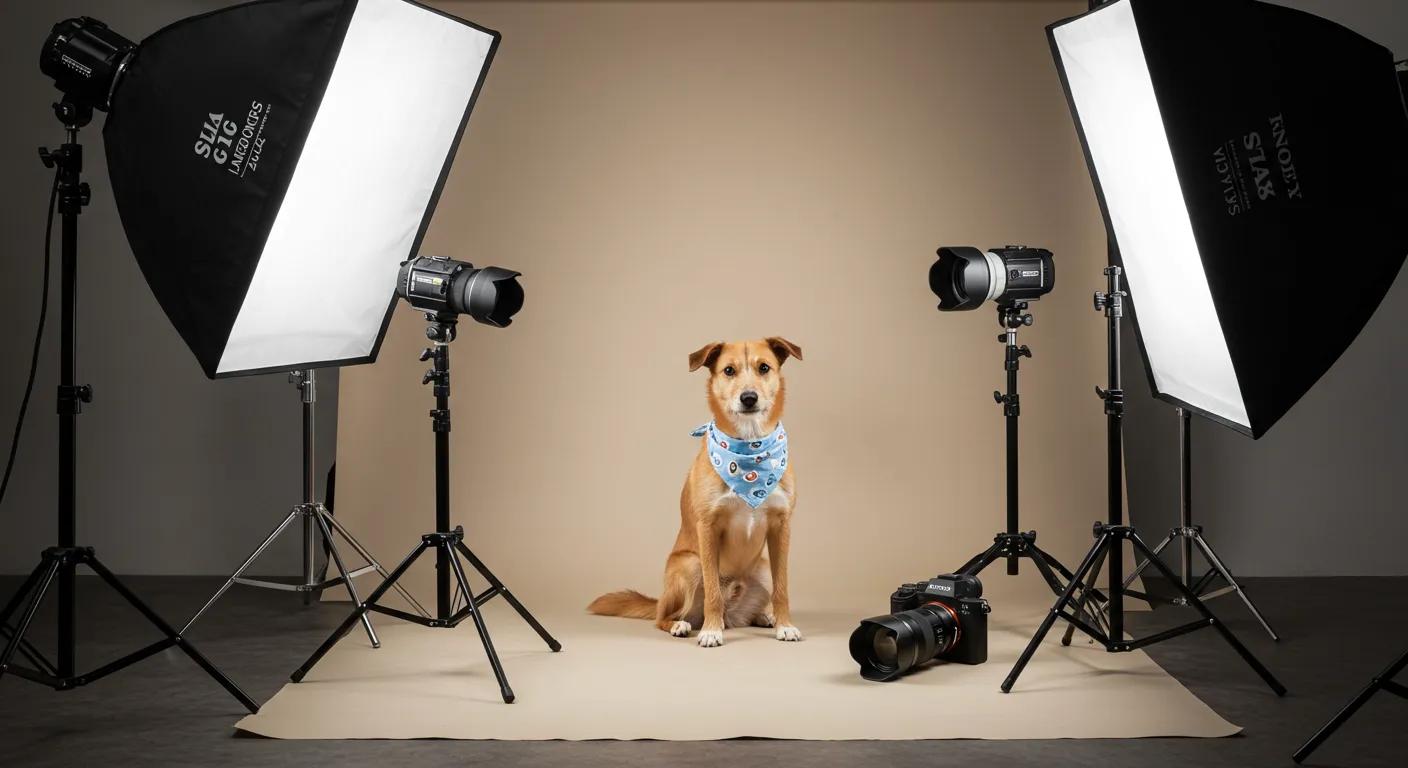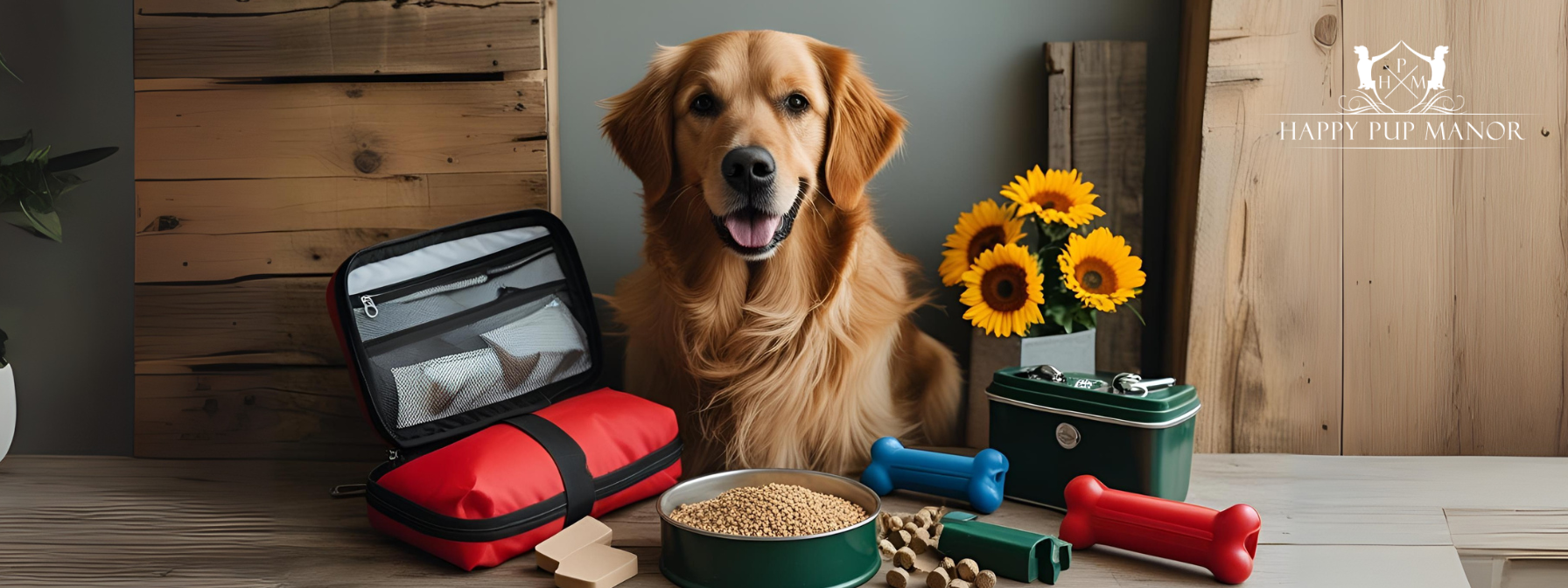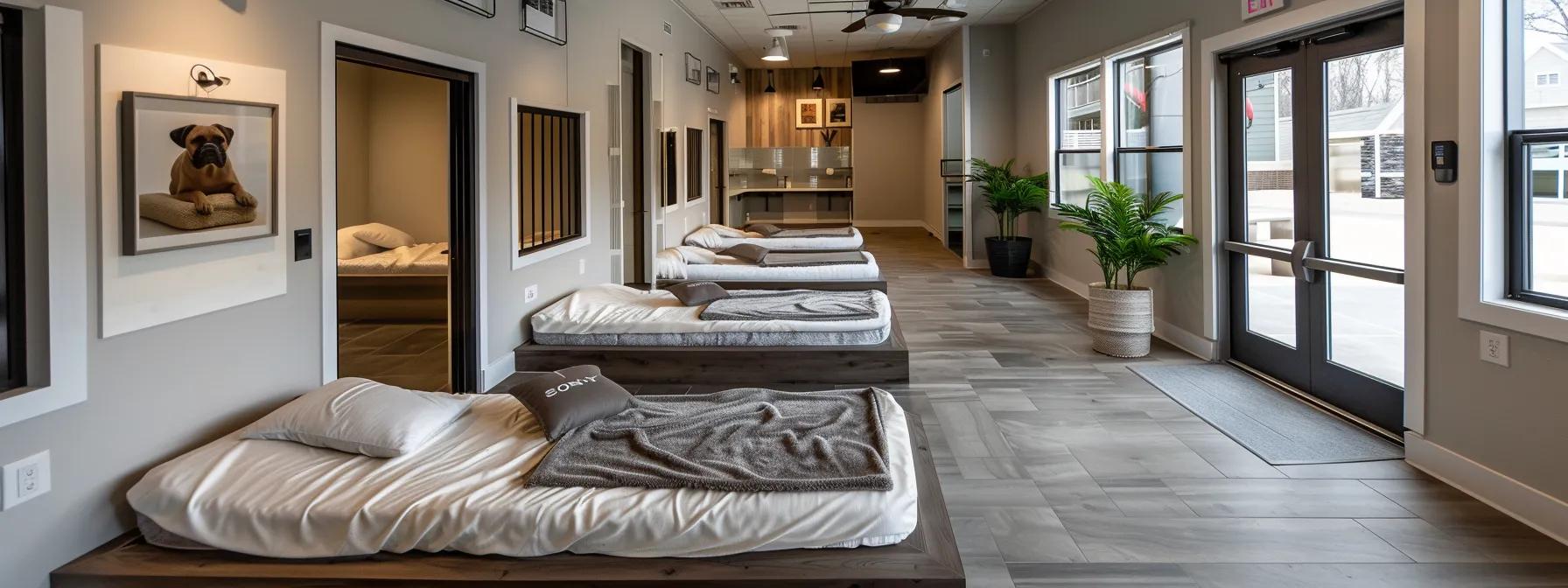Effective Preventative Care Tips for Dog Boarding

Effective Preventative Care Tips for Dog Boarding
Are you worried about your dog’s health when preparing for boarding? Ensuring your pet receives proper preventative care can significantly ease your concerns. This guide covers essential health check requirements, important veterinary appointments, and strategies for mentally preparing your dog. By following these tips, you can help your dog have a smooth boarding experience and minimize health-related worries, allowing you to enjoy peace of mind while you’re away.
Confirming Essential Dog Boarding Health Check Requirements

Before sending your dog to daycare or dog boarding at Happy Pup Manor, ensure you verify vaccination mandates with the facility. Additionally, request their occupational licensure document to confirm compliance. Understand the required timelines for vaccinations and ask about their parasite control policies. Additionally, inquire about health screenings upon arrival and check the facility’s rules regarding spaying or neutering to keep all dogs healthy and happy. Also, ensure the facility adheres to the chicago building code for safety standards.
Verify Vaccination Mandates With the Boarding Facility
Before your dog joins a boarding facility, it’s essential to verify their vaccination mandates to prevent disease transmission. Important vaccines, such as those for leptospirosis, help protect dogs from serious health risks. Always make a checklist of required vaccinations to ensure your pet meets the facility’s requirements:
- Check the vaccine for rabies.
- Confirm distemper and parvovirus vaccines are updated.
- Verify leptospirosis vaccination is included.
- Ensure your dog’s training aligns with any specific facility policies.
Understand Required Timelines for Vaccinations Before Stay
Understanding the required timelines for vaccinations is vital when preparing your dog for boarding services. For optimal health and safety, schedule vaccinations well in advance of your stay, as many facilities require them to be completed at least two weeks beforehand. This attention to detail not only ensures compliance with regulations but also offers peace of mind during dog daycare or pet sitting services.
Ask About Parasite Control Policies
Inquire about the facility’s parasite control policies, as they play a significant role in maintaining a healthy environment for your dog. Confirm strategies for managing fleas and potential outbreaks of kennel cough, especially during periods of high socialization with other animals. Adequate ventilation and cleanliness are essential in preventing the spread of parasites and ensuring a safe space for your furry companion:
- Ask about their flea and tick prevention measures.
- Check how they manage potential kennel cough cases.
- Understand their cleaning and ventilation protocols.
- Discuss how they ensure socialization occurs safely.
Inquire About Health Screening Upon Arrival
When you arrive at the boarding facility, it’s crucial to inquire about their health screening protocols to ensure your dog’s well-being. A thorough exam, including checks for bordetella and other common ailments, can help mitigate stress for both you and your pet. Additionally, discussing your dog’s diet and any specific needs will allow staff to provide tailored care, so your dog feels comfortable in their new environment.
Check Facility Rules Regarding Spaying or Neutering
Before choosing a kennel, check their policy regarding spaying or neutering. Some facilities may require dogs to be spayed or neutered for reasons of internal medicine that promote a healthier environment and reduce behavioral issues. Understanding these guidelines will help pet owners make informed decisions about their dog’s care and accessibility to top-notch boarding services.
- Verify spaying or neutering rules.
- Understand the impact on your dog’s health and behavior.
- Discuss specific needs with the kennel staff.
With your dog’s health check complete, it’s time to ensure they are ready for their stay. Scheduling veterinary appointments is the next crucial step before you board your furry friend.
Scheduling Necessary Veterinary Appointments Pre-Boarding

Booking a pre-boarding wellness examination is crucial before your dog’s stay at a boarding facility. During this visit, ensure core vaccinations like rabies and DHPP are current. Additionally, discuss the need for the Bordetella vaccination and the canine influenza vaccine with your veterinarian. If the facility requires a health certificate, obtaining one will provide peace of mind for you and the staff.
Book a Pre-Boarding Wellness Examination
Booking a pre-boarding wellness examination is an essential step in preparing your dog for their stay at a boarding facility. This appointment ensures that your pet’s vaccinations are up-to-date, including crucial ones such as rabies and Bordetella, which help prevent illness. By discussing your dog’s specific health needs with the veterinarian, you can set your pup up for a comfortable and safe boarding experience.
Update Core Vaccinations Like Rabies and DHPP
Updating your dog’s core vaccinations, especially rabies and DHPP, before boarding is paramount for their safety. These vaccines protect against serious diseases and are often required by boarding facilities. By ensuring your dog is up-to-date, you not only comply with regulations but also gain peace of mind, knowing your pet is less vulnerable to potential health risks while enjoying their stay.
Administer Bordetella Vaccination as Required
Administering the Bordetella vaccination is a key step in ensuring your dog’s health while boarding. This vaccine protects against kennel cough, which can spread easily in communal environments. Before boarding, confirm with your veterinarian that your dog has received this vaccine, as many facilities require it to help maintain a healthy atmosphere:
- Schedule the Bordetella vaccination well in advance of your dog’s stay.
- Ask your vet about potential side effects and reactions.
- Ensure your dog has received the vaccine within the required timeframe as per the boarding facility’s guidelines.
Discuss Canine Influenza Vaccine Needs With Your Veterinarian
Discussing the canine influenza vaccine with your veterinarian is vital for your dog’s health during boarding. This vaccine helps protect against a highly contagious virus that can spread easily in communal settings. Make sure to ask your vet about your dog’s specific needs, including when the vaccine is necessary and any potential side effects to watch for:
- Schedule a timely vaccination appointment before boarding.
- Confirm the vaccine’s importance based on your dog’s exposure risk.
- Understand the timeline for vaccine administration to ensure it’s effective.
Obtain a Health Certificate if the Facility Needs One
Before your dog’s boarding experience, obtaining a health certificate is essential if the facility requires one. This document confirms your dog’s health status and vaccination record, ensuring they are fit for group settings. By proactively securing this certificate, you’re not only adhering to the facility’s policies but also ensuring your dog’s well-being, which provides peace of mind for both you and the boarding staff.
Ensuring your dog is ready for their stay goes beyond vet visits. By applying simple preventative care tips, you can help your furry companion thrive while boarding.
Implementing Preventative Care Tips for Boarding Dogs

Ensuring your dog’s safety and comfort during their boarding experience involves proactive care. Start with consistent flea and tick prevention and maintain regular heartworm medication. Address any minor health concerns before their stay. Acclimate your dog to brief separations and continue their regular diet for a smooth transition. These steps will help keep your pup happy and healthy.
Ensure Consistent Flea and Tick Prevention
Ensuring consistent flea and tick prevention is essential for keeping your dog healthy while boarding. Use veterinarian-recommended products, such as topical treatments or oral medications, and apply them regularly. A proactive approach not only protects against infestations but also brings peace of mind when you’re away from home:
- Choose a reliable flea and tick prevention method suited for your dog.
- Administer treatments well before your boarding stay.
- Maintain an ongoing schedule for prevention to keep your dog safe.
Maintain Regular Heartworm Prevention Medication
Maintaining regular heartworm prevention medication is essential for your dog’s health before and during their boarding stay. Heartworm disease can lead to severe consequences, so it’s vital to stay on schedule with preventive treatments. Consult your veterinarian about the best options for your dog, and ensure they receive their medication consistently to keep them safe and sound while enjoying their time away from home.
Address Any Minor Ailments Before the Stay
Before your dog’s boarding stay, make sure to address any minor ailments your pet may have. Common issues, such as skin irritations or digestive troubles, should be managed to ensure your dog is comfortable and healthy during their time away. By consulting with your veterinarian and providing any necessary treatments, you help create a positive boarding experience for both your dog and the staff at the facility.
Acclimate Your Dog to Brief Periods Apart
To help your dog adjust to being away from you, gradually acclimate them to brief periods apart. Start by leaving them alone for short durations, gradually increasing the time. This practice helps reduce anxiety and promotes confidence, making their boarding experience smoother and more enjoyable for both you and your pup.
Keep Your Dog on Their Regular Diet Before Boarding
Maintaining your dog’s regular diet before boarding is essential for their well-being. A sudden change in food can lead to digestive upset, making their stay uncomfortable. Stick to their usual feeding schedule and portions, and pack enough of their regular food to ensure consistency, helping your dog settle into the boarding environment with ease.
You’ve taken great steps to keep your dog healthy while boarding. Now, it’s time to gather their medical history and essential documents to ensure their stay is smooth and worry-free.
Gathering Your Dog’s Medical History and Documentation

Compiling complete vaccination records for the boarding facility is essential for your dog’s safety. Prepare a detailed list of current medications and dosages, document any known allergies or food sensitivities, and include your primary veterinarian’s contact information. Providing reliable emergency contact details ensures that your dog is well-cared for during their stay, preventing any unforeseen issues.
Compile Complete Vaccination Records for the Facility
Compiling complete vaccination records for your dog is essential when preparing for boarding. Ensure you gather documentation for core vaccines like rabies, DHPP, and Bordetella, as these protect your pet and comply with facility requirements. Keeping this information organized helps you provide the necessary details swiftly, ensuring a smooth check-in process and peace of mind during your dog’s stay.
Prepare a Detailed List of Current Medications and Dosages
Preparing a detailed list of your dog’s current medications and dosages is essential for ensuring their health during boarding. This information helps the staff provide appropriate care and prevent any potential adverse reactions. Be sure to include any specific instructions from your veterinarian, as this ensures everyone involved understands how to maintain your dog’s well-being throughout their stay.
Document Any Known Allergies or Food Sensitivities
Documenting any known allergies or food sensitivities is essential to ensure your dog’s safety and comfort during their boarding stay. This information helps the staff at the facility provide appropriate meals and avoid any potential allergens that could cause health issues. Be sure to communicate this information clearly to prevent any complications during your dog’s time away from home:
- List all known food allergies.
- Include any environmental allergies.
- Specify any special dietary needs.
Include Your Primary Veterinarian’s Contact Information
Including your primary veterinarian’s contact information is a vital step in ensuring your dog’s well-being during their boarding stay. This information allows the facility to quickly reach out for any health-related concerns or emergencies. Make sure to provide not only the name and phone number of your vet but also any specific instructions that could assist the boarding staff in caring for your pet effectively.
Provide Reliable Emergency Contact Details
Providing reliable emergency contact details is a crucial part of ensuring your dog’s safety during their boarding experience. Make sure to include multiple contacts, such as a trusted friend or family member, in case you’re unreachable. This not only gives peace of mind to the boarding staff but also ensures prompt communication in case of any health concerns or emergencies while your dog is away from you.
You have gathered your dog’s history and paperwork. Now, it’s time to help your dog adjust to the idea of boarding, ensuring they feel calm and secure before the experience begins.
Preparing Your Dog Mentally for the Boarding Experience

Preparing your dog mentally for their boarding experience is crucial for a smooth transition. Practice crate training if the facility uses crates, and ensure your dog is comfortable around other dogs, if applicable. A familiarization visit to the boarding center can help ease anxiety, and keeping your departure routine calm and positive will support your pet. Finally, inform the staff about your dog’s temperament and habits, ensuring they receive tailored care.
Practice Crate Training if the Facility Uses Crates
Practicing crate training before your dog’s boarding experience is essential, especially if the facility utilizes crates. This training not only helps your pet feel secure but also reduces anxiety when they enter a new environment. By familiarizing your dog with the crate, you make their stay more comfortable and promote a positive association, ensuring they adjust smoothly to the boarding experience.
Ensure Your Dog Is Comfortable Around Other Dogs if Applicable
To help your dog feel at ease around other dogs during their boarding experience, it’s helpful to gradually expose them to various canine companions. Arrange playdates or visits to dog parks to build their confidence and social skills. This proactive approach not only aids in reducing anxiety but also ensures a smoother transition when they encounter other dogs at the boarding facility.
Arrange a Familiarization Visit to the Boarding Center
Arranging a familiarization visit to the boarding center is a valuable step in easing your dog’s transition. During this visit, your dog can explore the environment, meet the staff, and even interact with other dogs. This exposure can significantly reduce anxiety and help your pet feel more comfortable when it’s time for their boarding stay, setting them up for a positive experience away from home.
Keep Your Departure Routine Calm and Positive
Maintaining a calm and positive departure routine is essential for your dog’s mental preparation before boarding. When you leave, keep the atmosphere relaxed and avoid prolonged goodbyes, as this can increase anxiety. Instead, consider establishing a consistent routine that reassures your dog, such as a special toy or treat reserved for boarding days:
- Practice making departures brief and upbeat.
- Incorporate a routine that includes a favorite toy or treat.
- Give your dog a warm, confident send-off to build trust.
Inform Staff About Your Dog’s Temperament and Habits
When preparing for your dog’s boarding experience, it’s essential to inform the staff about your pet’s specific temperament and habits. Sharing details about their personality, likes, and dislikes will help caregivers tailor their approach, ensuring your dog receives the best possible care. For instance, if your dog is shy around new dogs or enjoys particular toys, communicate this to make their stay more comfortable and enjoyable.
- Prepare to share key information about your dog’s temperament.
- Detail any preferences for toys or activities.
- Discuss any past experiences that may affect their behavior.
Now that your dog is mentally prepared, the next step is to focus on their health needs. Packing the right items for their stay ensures they remain comfortable and safe while you’re apart.
Packing Health-Related Items for Your Dog’s Stay

Packing essential health-related items for your dog’s stay is key to ensuring they remain comfortable and well-cared for. Portion your dog’s regular food for each meal and pack any necessary medications with clear instructions. Including a familiar comfort item can help ease anxiety, while written feeding and medication schedules keep staff informed. If used, consider packing approved calming supplements to support your pet’s well-being during their time away.
Portion Your Dog’s Regular Food for Each Meal
Portioning your dog’s regular food into individual meal servings is essential for their comfort and digestive health while boarding. By preparing these portions in advance, you help maintain their usual feeding schedule and prevent any sudden diet changes that could lead to upset stomachs. Clearly labeled bags will assist the staff in ensuring your dog receives the right amount at each meal time:
- Measure out daily portions based on your dog’s dietary needs.
- Use resealable bags to keep food fresh and organized.
- Label each bag with your dog’s name and feeding instructions.
Pack All Necessary Medications With Clear Instructions
Packing all necessary medications with clear instructions is essential for your dog’s well-being during their boarding experience. Include specific details about the dosage, frequency, and any special handling requirements. This clarity ensures that the boarding staff administers your dog’s medications correctly, helping to maintain their health and comfort while you’re away.
Include a Comfort Item Carrying Familiar Home Scents
Packing a comfort item that carries familiar home scents can significantly ease your dog’s adjustment during their stay at a boarding facility. Consider including a soft blanket or a favorite toy that smells like home, as these items can provide reassurance and comfort amidst a new environment. By maintaining some familiarity, you help alleviate anxiety, ensuring your furry friend feels secure while you are apart:
- Choose a soft blanket or toy that your dog frequently uses.
- Ensure the item is machine-washable for easy cleaning.
- Place the item in their bedding area at the boarding facility.
Supply Written Feeding and Medication Schedules
Providing written feeding and medication schedules is vital for ensuring your dog receives the proper care during their boarding stay. This document should clearly outline your pet’s feeding times, specific food portions, and any medications they need, along with dosages and administration times. By offering this information, you help the staff maintain your dog’s routine and health, making the boarding experience smoother for everyone involved:
- Detail your dog’s daily feeding schedule.
- Include specific medication instructions.
- Clearly mark serving sizes to avoid confusion.
Consider Packing Approved Calming Supplements if Used
If your dog tends to experience anxiety during boarding, consider packing approved calming supplements. These products can help reduce stress and make your pet’s stay more comfortable, especially in a new environment. Always consult with your veterinarian to ensure that any supplements are suitable for your dog’s specific needs and follow the recommended dosages:
- Research calming options that befit your dog.
- Check for any necessary pre-boarding usage timelines.
- Include clear instructions for the staff regarding administration.
Conclusion
Preventative care tips are essential for ensuring your dog’s health and comfort during boarding experiences. Consistent flea and tick prevention, regular heartworm medication, and addressing minor health concerns can significantly impact your pet’s well-being. Acclimating your dog to brief separations and maintaining their regular diet smooths their transition to a new environment. By implementing these strategies, you create a positive boarding experience that keeps your furry friend happy and healthy.











